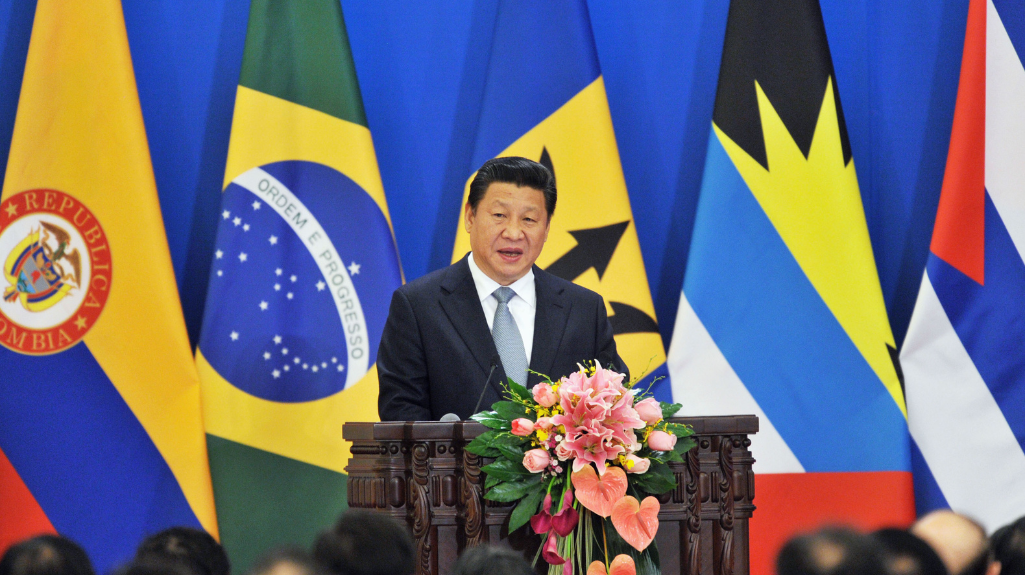Latin America and the Call for a Non-Euro IMF Director
Latin America and the Call for a Non-Euro IMF Director
With Dominique Strauss-Kahn gone, Latin Americanists eye non-European picks to head the International Monetary Fund.
Dominique Strauss-Kahn’s May 18 resignation from his position as head of the International Monetary Fund provided Latin American leaders with an unexpected opportunity to challenge the European stranglehold on one of the world’s most powerful financial positions. By informal arrangement, the position of IMF director has gone to a European since the institution was created in 1944, while Americans heads the World Bank. The arrangement reflected the political realities of the post-World War II world, but have little to do with today’s geopolitical realities and should be reformed, several Latin America experts argue.
“I don’t think that either the IMF or the World Bank should continue to be the monopoly of the United States and Europe,” said former Brazilian Foreign Minister Celso Amorim during a press conference at the Americas Society on May 16. “Of course, I would prefer someone from an emerging market, but it has to be a good person.” Using less diplomatic language, Venezuelan columnist Moisés Naím called the IMF’s tradition of appointing exclusively European directors “colonialist” and argued the Fund should instead adopt a non-discriminatory selection process based on merit. “In its daily work, the IMF demands that the governments that seek its financial assistance adopt market principles of efficiency, transparency, and meritocracy in exchange for its help. Yet that same institution selects its leader through a process completely at odds with those values,” Naím wrote. “[That policy] is now obsolete, unacceptable, and counterproductive to the cause of global economic stability.”
The IMF appears to be listening. In a May 20 press release, the Fund said it will adopt an open and meritocratic process to select its next director. The only requirement regarding country of origin is that the successful candidate “be a national of any of the Fund’s members.” If the IMF receives more than three eligible candidates by the closing date on June 10, the Fund’s directors will decide on a shortlist of three candidates. The Fund employs a weighted voting system slanted toward developed countries. “The point is that, if the decision is made to open the doors to non-Europeans for consideration, the Western Hemisphere boasts a level of talent that is genuinely world class,” writes COA’s Eric Farnsworth in The Huffington Post. “There is an opportunity here that should not be missed.”
Mexico thinks it may have the right person for the job. The Calderón administration formally nominated its Central Bank Governor Agustín Carstens as a candidate for the IMF director position on May 23. Carstens holds a PhD in economics from the University of Chicago and served as Mexico’s finance secretary through the global financial crisis. Carstens is also a veteran of the IMF, having served as the institution’s managing director from 2003 to 2006. He presents himself as a champion of emerging-market nations and argues that they should play a greater role at the Fund. “I think I have the qualifications to take up the position as director of the IMF,” Carstens said in a press conference, according to Mexican daily El Universal. “I also know the Fund from the point of view of a public functionary.”
But Carstens’ experience may not be enough. He has yet to secure support for his candidacy and faces stiff competition from French Finance Minister Christine Lagarde, who appears to lead the race after winning the backing of China, Germany, Italy, and Sweden. The remaining BRICS, as the world’s major emerging economies are known, have yet to rally behind one candidate. Russia will back Grigori Marchenko of Kazakhstan’s Central Bank. Brazil, India, and South Africa have not announced their preference, though India is building consensus among emerging countries behind the scenes to support a single candidate. That candidate may be South African Finance Minister Trevor Manuel, according to an unnamed source at the Indian finance ministry told Reuters.
Learn more:
- “For IMF Managing Director: Latin America’s Opportunity,” COA Vice President Eric Farnsworth, The Huffington Post, May 19, 2011.
- Bloomberg interviews Agustín Carstens about his IMF candidacy.
- See the Mexican government’s letter nominating Agustín Carstens to the IMF director position.
- The IMF describes its new process for selecting the Fund’s director in a press release.








